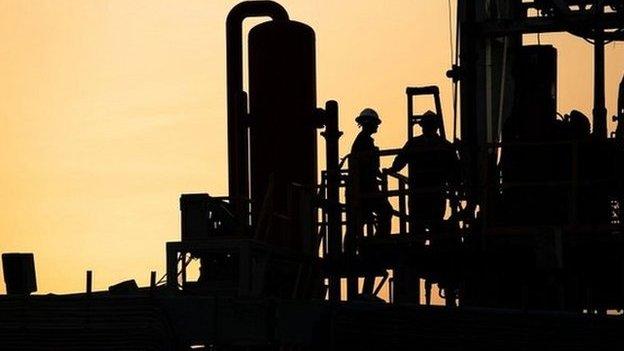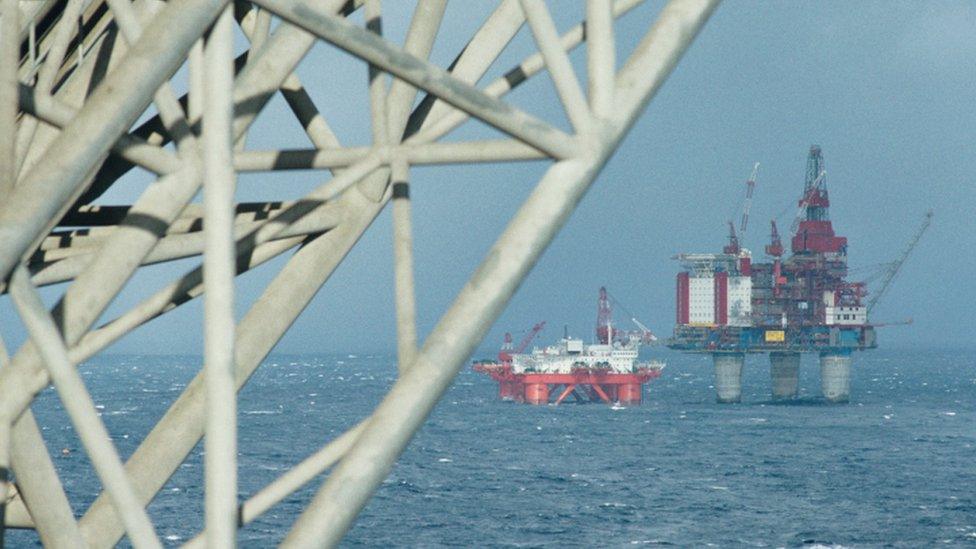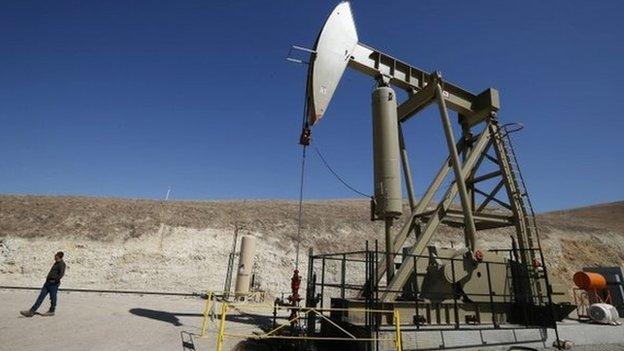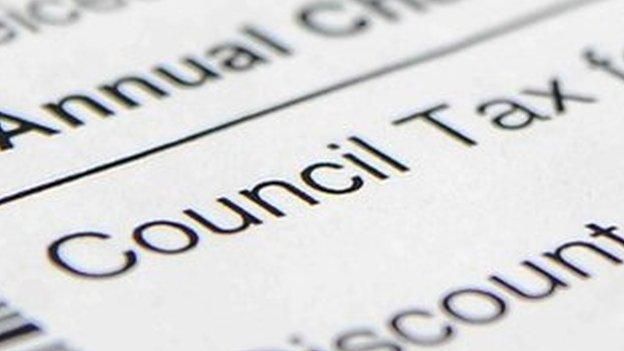More oil, but at the wrong time
- Published

The year begins with the same subject that featured in the global and Scottish economy in 2015: oil.
There's good and bad news. And on several fronts.
Diesel is today selling in some supermarket forecourts at less than £1 per litre. Nice if you use diesel.
Not so great if you produce it, or if you want to curtail burning of it for environmental reasons.
Industry analyst Douglas-Westwood has today warned that the backlog of work in subsea operations worldwide has disguised the falling away of orders.
It forecasts a 15% drop in the next year in sub-sea installations.
With budgets slashed, offshore discoveries last year were down 60% on 2013 and 45% down on 2014.
That looks bad, but it's a bust that could lead to a boom. If replacement reserves are not being discovered, there's a reasonable chance of a shortage of output a few years away, pushing prices up again.
Nervous market
Recent assumptions have been that a significant rise in world oil prices has not been expected until towards the end of this year. The word is that it's "lower for longer".
But then, you should expect the unexpected. One of the uncertainties around supply of oil is political tension around the Persian Gulf.
It doesn't take much of a threat to the Straits of Hormuz, between Iran and its Sunni neighbours, to make the market nervous.
With Saudi Arabia and Iran in a serious diplomatic tiff, that threat of disruption explains why oil prices have risen with the first day of 2016 trading.
At one point, it was up 4% at nearly $39, counter to the sharp downward plunge of stock markets.
[Note, 24 hours later: that boost to the price has been lost in subsequent trading. Brent crude has fallen back below $37 per barrel.]
Bumper investments
We have also heard today that production in the UK offshore sector is well ahead of expectations.

It was thought that output would rise during 2015, but only a little, ending a 15-year decline from the North Sea peak, more recently steeper than anticipated.
It was clear that a bumper series of investments in new fields were sure to raise output of oil and gas, against the trend of declining output from older fields.
The drive to cut costs means non-essential maintenance may also have been postponed, meaning that production could continue.
So now, Oil & Gas UK, the trade body, is predicting the full year of 2015 is going to be at least 7% up on 2014.
UK government statistics for January to October show oil up 10.6% and gas by 6.1%. November and December rarely change that picture.
We're yet to hear of the long-delayed first gas from the Laggan-Tormore field, west of Shetland, but when it comes, that will boost 2016 figures.
Hostile and corrosive
So here's another combination of good news for the industry coinciding with the bad - production rises at the point when prices drop.
So would it not be more sensible to hold back on production until prices rise again?
Not in the offshore sector. Once £40bn of investment has been committed, as we've seen over recent years, oil companies don't have the patience or capital to wait until the price rises.
Nor does the technology lend itself to sitting idle while the markets make up their minds.

In the Arabian deserts or Texas, pumps can be switched off when the price falls - though this time, the Saudis have chosen not to do so.
In the Dakotas, fracked wells run out of pressure, and without renewed activity, output dwindles over time.
But in the hostile, corrosive waters around Britain, once you've committed, you have to keep up momentum.
Upward blip
You could say the same of Norway. But Norway has got lucky - or made its own luck? - with the timing of its production.
Britain's production peaked when prices and profits (the taxable bit) were low. Its offshore fields have been, on average, smaller than Norway's, and its tax rates lower.
The UK government chose to sell off its stake in oil companies and oil fields, losing out on the opportunity for profits.
As I've written before, an analysis of production, price, profits and tax revenue shows the UK and Norway have produced similar levels of oil and gas since 1971.
But the Norwegian state gained nearly $30 from each barrel of oil extracted, while the UK government gained only $11.
As the UK sector is now seeing an upward blip on the long-term downward trajectory of output, that is welcome for the beleaguered offshore energy industry. But it has come, again, at the wrong time.
- Published14 December 2015
